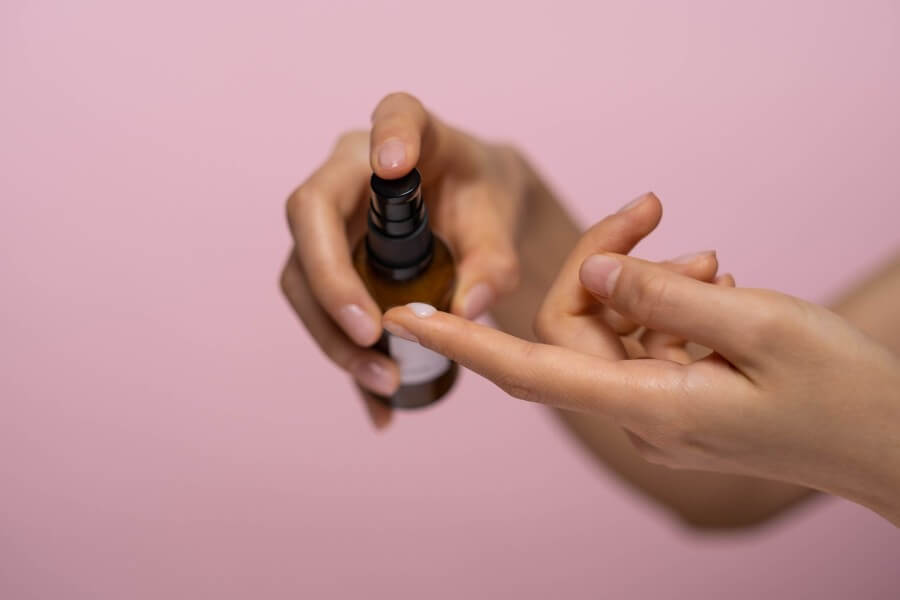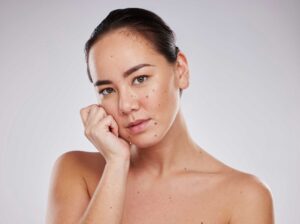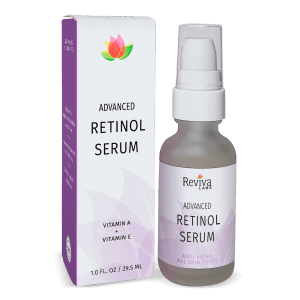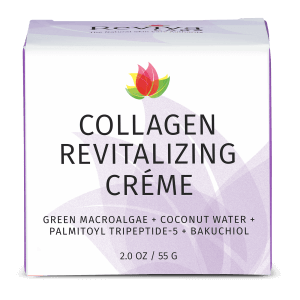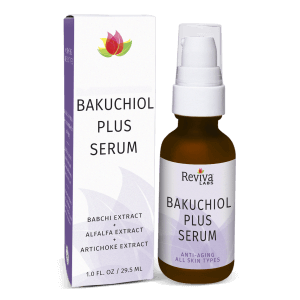Ingredients, Natural, Reviva Labs, Skin Care
Is Bakuchiol Better Than Retinol?
The skincare landscape is continually evolving, with new ingredients and formulations promising to transform our skin. Retinol, a derivative of vitamin A, has long been hailed as a skincare superstar for its numerous benefits. However, a new challenger has entered the arena – Bakuchiol, a plant-based alternative to retinol. But is Bakuchiol better than retinol? This article dives deep into the battle between these two skincare heavyweights, exploring their benefits, side effects, and how they work.
Understanding Retinol and Its Benefits
Retinol, a form of Vitamin A, is a stalwart in anti-aging skincare. It’s known for its potent ability to stimulate cell turnover, thereby reducing the appearance of fine lines, wrinkles, and dark spots. Over time, consistent use of retinol can significantly improve skin texture and tone, resulting in a smoother, more youthful complexion.
Retinol works by boosting collagen production, neutralizing free radicals, and accelerating the skin’s natural exfoliating process. This ability to promote skin cell renewal also makes retinol effective at fading dark spots and treating breakouts. Regardless of its potency, retinol is available over the counter, making it a common ingredient in skincare products.
Introducing Bakuchiol: The Natural Alternative
Bakuchiol, often dubbed as ‘nature’s retinol,’ is a plant-derived anti-aging ingredient that has been used in Indian and Chinese traditional medicine. It is found in the seeds and leaves of the Psoralea Corylifolia, or Babchi plant. Like retinol, Bakuchiol is known for its anti-aging properties. It helps prevent fine lines, increases skin elasticity, and helps to reduce hyperpigmentation.
Despite the similarities, Bakuchiol offers a significant advantage over retinol – it’s considerably gentler on the skin. Bakuchiol has shown to be beneficial for all skin types, including the most sensitive, making it a viable option for those who find retinol too harsh.
Bakuchiol vs Retinol: A Comparative Study
Although Bakuchiol and retinol offer similar benefits, they differ in several ways. A major difference lies in their derivation – while retinol is a form of Vitamin A, Bakuchiol is extracted from plants. This plant-based origin is why Bakuchiol is often marketed as a natural alternative to retinol.
Recent studies have shown promising results in comparing the efficacy of Bakuchiol and retinol. A 2018 study published in the British Journal of Dermatology revealed that Bakuchiol and retinol both effectively reduced wrinkle surface area and hyperpigmentation. However, it’s important to note that to achieve these results, Bakuchiol required two applications a day, whereas retinol only required one.
Side Effects: Retinol vs Bakuchiol
While the benefits of retinol and Bakuchiol are comparable, the side effects are not. Retinol can cause skin dryness, peeling, and irritation, which can be particularly challenging for individuals with sensitive skin. On the other hand, Bakuchiol has been reported to cause less irritation, making it more tolerable for a wider range of skin types.
Despite being gentler, Bakuchiol is not entirely without side effects. Some users have reported mild skin redness, although it occurs less frequently than with retinol use. As with all skincare products, it’s always wise to patch test any new product to ensure it does not cause undesirable reactions.
Bakuchiol and Acne: A Promising Solution
One of the standout benefits of Bakuchiol is its anti-inflammatory and antibacterial properties, which can be beneficial for acne-prone skin. Its ability to tighten pores, soothe inflammation, and regulate sebum production makes Bakuchiol a promising ingredient in the fight against acne.
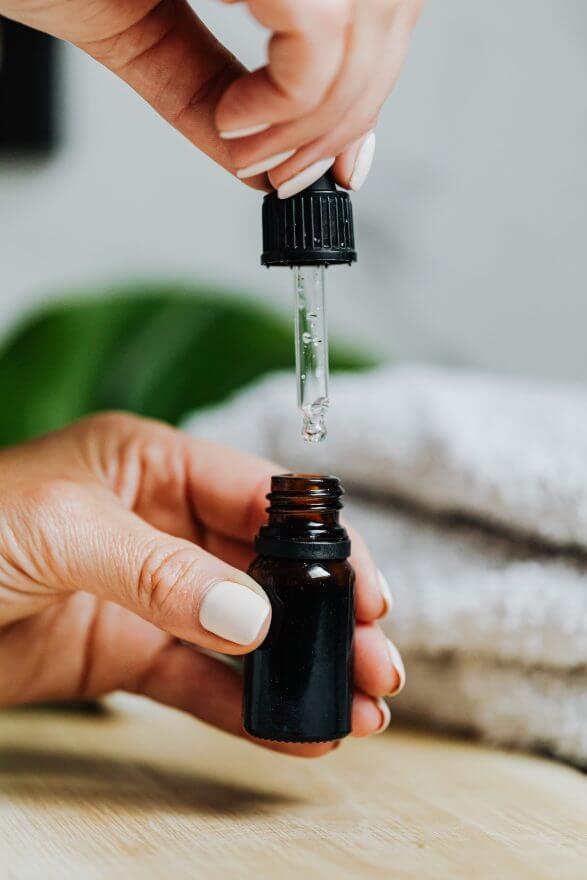
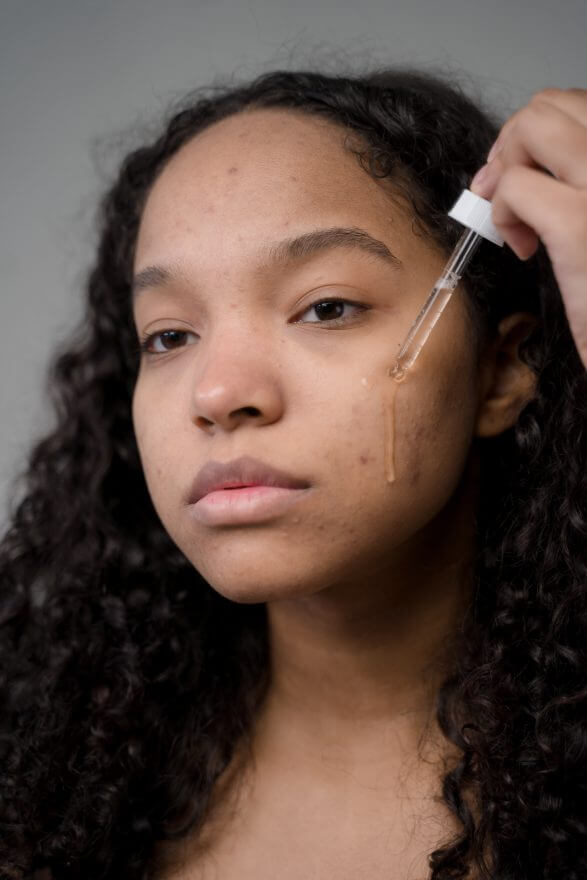

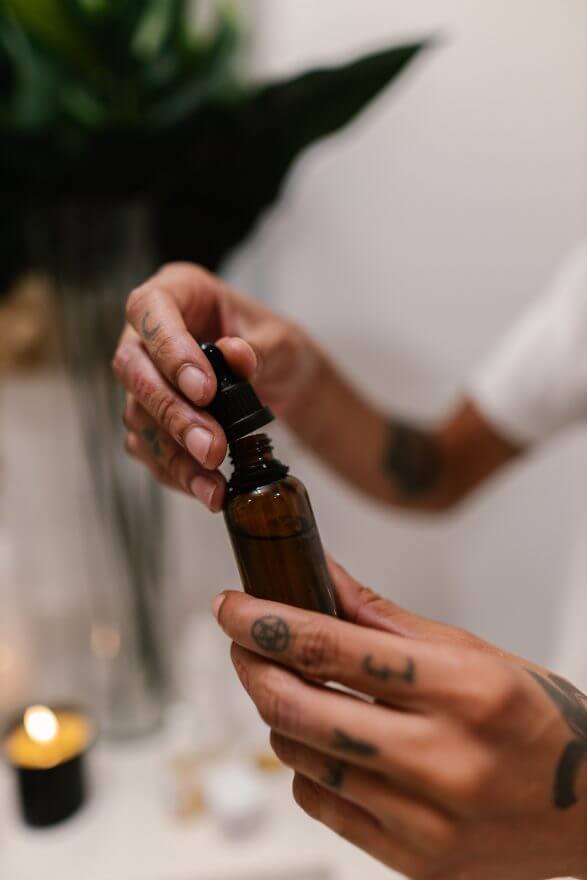
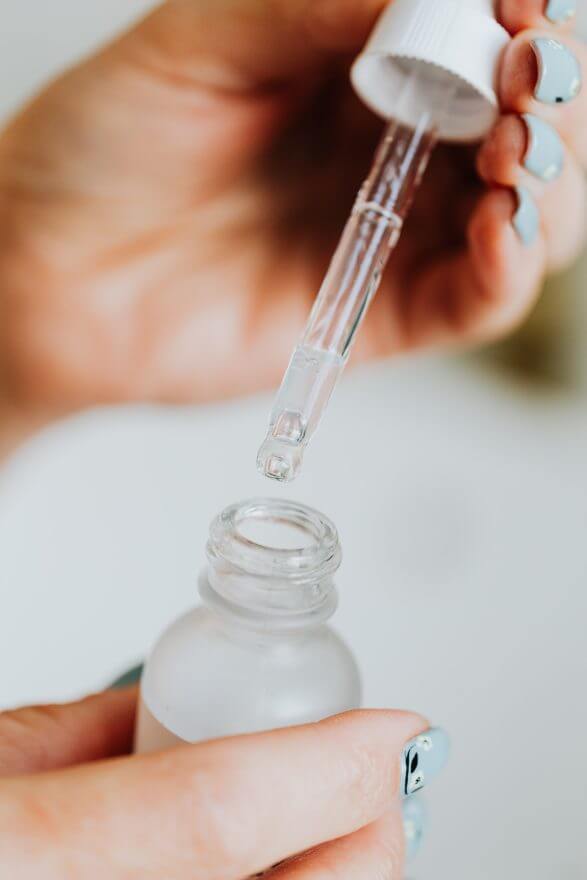
Bakuchiol or Retinol: The Verdict
The choice between Bakuchiol and retinol ultimately depends on one’s skin type, concerns, and personal preference. For individuals with sensitive skin or those seeking plant-based skincare solutions, Bakuchiol is a fantastic option. It offers similar benefits to retinol without the associated irritation.
However, if you have a higher tolerance for active ingredients and seek more dramatic results, retinol may be the better choice. Just remember, retinol should be introduced gradually into a skincare routine to minimize potential side effects.
Regardless of the choice, it’s essential to remember that skincare is personal. What works for one person may not work for another. It’s always best to consult with a dermatologist before introducing new active ingredients into your skincare routine.
How to Use Bakuchiol and Retinol
How you incorporate Bakuchiol or retinol into your skincare routine depends on the specific product and your skin’s tolerance. Generally, retinol is recommended for nightly use due to its photosensitivity. On the other hand, Bakuchiol can be used both morning and night as it does not degrade in sunlight.
When introducing either ingredient into your skincare routine, it’s best to start slowly. Begin with a lower concentration and gradually increase as your skin becomes more accustomed to the product. Always apply these ingredients after cleansing and toning, but before heavier creams or oils.
Best Bakuchiol and Retinol Products
The skincare market is abundant with products featuring Bakuchiol or retinol. When selecting a product, consider the concentration of the active ingredient, additional beneficial ingredients, and product reviews. Reviva Labs offers both our Bakuchiol Plus Serum and our Retinol Serum.
Conclusion
The Bakuchiol vs retinol debate ultimately comes down to personal preference and skin type. Both ingredients offer significant benefits in terms of anti-aging, improving skin texture, and reducing hyperpigmentation. Bakuchiol has the added advantage of being gentler and more tolerable, especially for sensitive skin types. It also does not degrade in sunlight, unlike retinol, allowing for more flexible use. However, retinol remains a potent and effective option for those seeking more dramatic results and who can tolerate its potential side effects. As always, consult with a dermatologist before introducing new active ingredients into your skincare routine.



